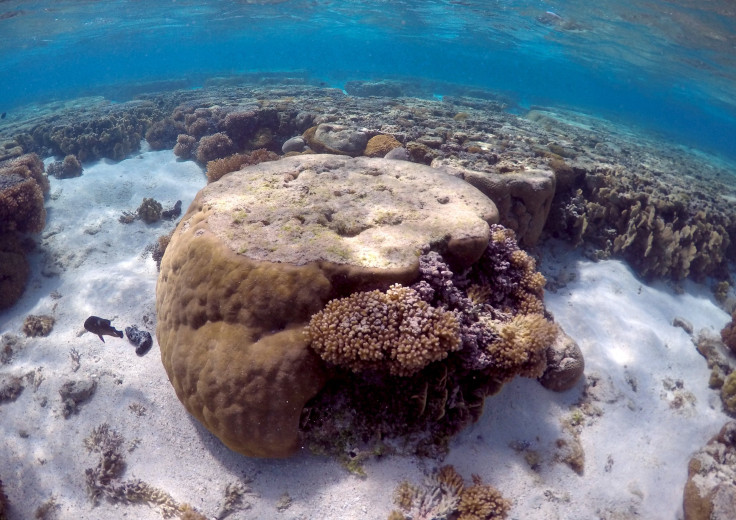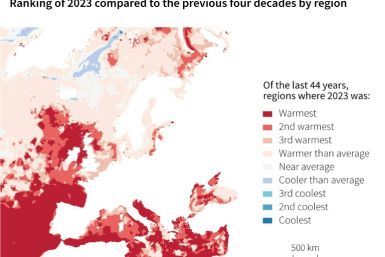Australia’s Great Barrier Reef coral bleaching ‘by far the biggest signal’ of climate change and ‘strongly linked to global warming’

This year’s coral bleaching of the Great Barrier Reef is the strongest on record, and Australians are finding it hard to believe that more than 50 percent of the corals in far north of the World Heritage Site are dead. It’s a sorry sight for all Australians and environmentalists around the globe. Even tourists visiting the location cannot fathom the devastation caused by rising ocean temperatures brought about by strong El Nino conditions. Human-induced climate change is to blame and all of these point to widespread global warming.
“There's about 900 reefs in that section and essentially all of those were severely bleached, above 50 percent. Some as high as 90, close to 100 percent bleached,” Great Barrier Reef Marine Park Authority, Dr. Russell Reichelt, told Senate estimates on Thursday.
Till date, the northern section of the reef is the hardest hit. Mortality in that area is likely to be 50-60 percent. He added that the massive bleaching event is strongly linked to global warming. Rising water temperatures kill the corals and make it difficult for them to recover.
Director of ARC Centres of Excellence, professor Terry Hughes, is vigorously spreading awareness on the condition of the reef and criticising authorities for not taking appropriate actions.
But no protection for #GreatBarrierReef from #climatechange as Australia continues to subsidise #fossilfuels https://t.co/QDQSdReW8j
— Terry Hughes (@ProfTerryHughes) May 3, 2016
This #reef used to be alive. Now we map dead and dying #corals. https://t.co/lqxbshXvIM
— Terry Hughes (@ProfTerryHughes) May 4, 2016
"Climate Angels" is a beautiful concept, in a world of fossil fuel corruption https://t.co/LkcgLn65J2
— Terry Hughes (@ProfTerryHughes) May 4, 2016
Reality check on Reef #Resilience: Severe #bleaching kills 100yr old corals, and they can't come back in 10 years. pic.twitter.com/Z33CYKc8cG
— Terry Hughes (@ProfTerryHughes) April 25, 2016
I'm glad that #davidattenborough saw the #GreatBarrierReef again, before the 2016 #bleaching broke his heart pic.twitter.com/wcDnt7fPD0
— Terry Hughes (@ProfTerryHughes) April 24, 2016
It has also been revealed that the $171 million that Environment Minister Greg Hunt claimed for reef protection was not “new money,” and that it came from other programs. According to Hughes, only seven percent of the reef is still unaffected by coral bleaching. Reichelt said that water quality is the second biggest threat to the reef. Nutrient levels entering the coastal fringing reefs were four to five times higher than the conditions corals had evolved in.
Greens Senator Larissa Waters expressed disappointment over Turnbull government’s reef protection efforts. She said that the reef funding was not only inadequate but also at the expense of other environmental programs.
“In a budget that keeps more than $20 billion in subsidies to fossil fuels and gives $100 million in new money to mining exploration, it's an indictment on the government that there is no new money for the reef that doesn't come at the expense of other environment programs," Waters said in a statement.






